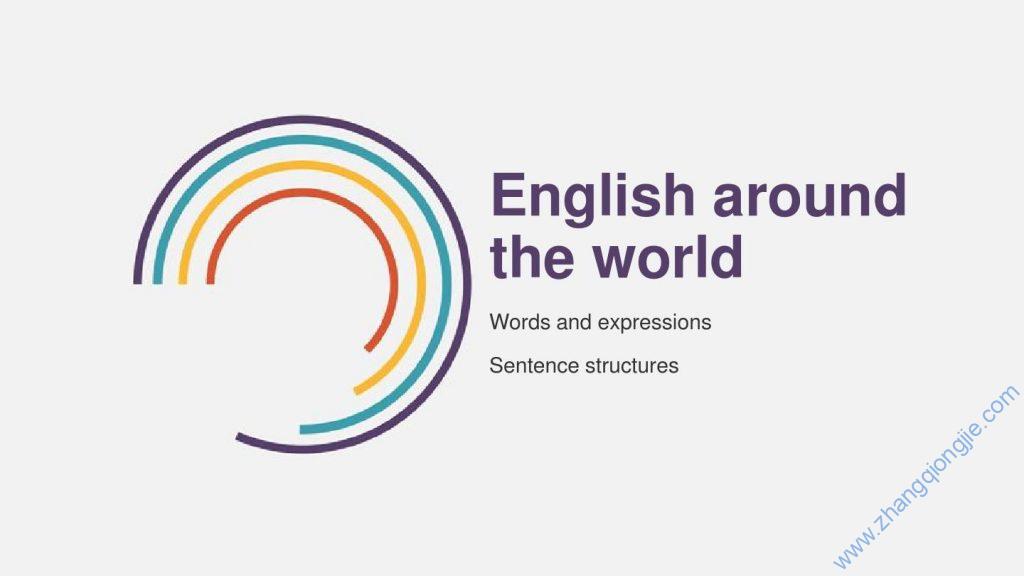一、动词的分类
1.动词共分为五种
a.主语 + 完全不及物动词
He fainted. (他晕倒了。)
b.主语 + 不完全不及物动词 + 标语
He is a gentleman. (他是君子)
c.主语 + 完全及物动词 + 宾语
I love her. (我爱她。)
d.主语 + 不完全及物动词 + 宾语 + 宾语补语
He made me angry. (他使我生气。)
e.主语 + 授予动词 + 间接宾语 + 直接宾语
He gave me a book. (他给我一本书。)
由上得知,以上五大基本句型全由五种动词演绎而成。故若想了解句型结构,就须了解如何判断动词是及物动词还是不及物动词。
2.判断及物或不及物动词的方法:
我____他。
他被我____。
将英文的动词随意填入上列两句空格中,再译成中文。如果意思无毛病,就是及物动词(transitive verb, 简称 vt), 否则就是不及物动词(intransitive verb, 简称 vi.)。
注意:在上列两个含有空格的中文句中,“我”、“他”可任意改变成其他名词或代词,如:我洗车。车被我洗了。
二、完全不及物动词
完全不及物动词即无须加宾语意思就很完全的动词(简称 vi)。出现的形态只有两种:
a.主语 + vi
Something happened. (有事发生了。)
Something will happen. (有事即将发生。)
Something has happened. (有事已经发生了。)
b.主语 + be + vi.的现在分词(即 V-ing)
Something was happening. (当时有事正在发生。)
由上得知,凡不及物动词,不可造成下列的句子:
Something was happened. (×)
三、完全及物动词
1.完全及物动词即加了宾语意思很完全的动词(简称 vt.)。
He wrote a book. (他写了一本书。)
I washed the car. (我洗了车。)
2.完全及物动词出现的形态有四种:
a.主语 + vt. + 宾语
He wrote a book. (他写了一本书。)
b.主语 + be + vt. 的现在分词 + 宾语(正在……)
He was writing a book. (当时他正在写一本书。)
c.主语 + be + vt. 的过去分词(被……)
The book was written by him. (这本书是他写的。)
d.主语 + be + being + vt.的过去分词(正在被……)
The book was being written by him. (当时这本书正被他撰写中。)
3.表“意愿”的动词,应以不定式短语作宾语。
a.常用的表“意愿”的动词如下:
want(要)、hope(希望)、wish(希望)、expect(期望)、long(渴望)、aspire(渴望)、desire(渴望)、refuse(拒绝)
I want seeing him after class. (×)
——>> I want to see him after class. (√) (下课后我要去看他。)
I hope to study abroad next year. (我希望明年能出国深造。)
b.anticipate亦表“期待”,但仅可用动名词作其宾语。
I expect to see him again. (√)
== I anticipate seeing him again.
== I’m looking forward to seeing him again. (我期盼再次见到他。)
4.下列完全及物动词一律以动名词做宾语:
consider(考虑)、imagine(想象)、enjoy(喜欢)、dislike(不喜欢)、resent(痛恨)、suggest(建议)、recommend(建议)、avoid(避免)、escape(逃避)、risk(冒险)、deny(否认)、admit(承认)、mind(在乎)、practice(练习)、finish(完成)、quit(停止、戒除)
I’ll consider to study abroad. (×)
——>> I’ll consider studying abroad. (√) (我会考虑出国深造。)
The thief finally admitted stealing/having stolen the money. (小偷终于承认偷了这些钱。)
5.下列动词可接不定式做宾语,亦可接动名词作宾语,意思有别:
a.forget to V (忘了要……)
forget V-ing (忘了曾……)
Sorry, I forgot to mail the letter. (抱歉,我忘了要寄这封信。)
I forgot seeing him before. Now I remember. (我忘了曾见过他。现在我记起来了。)
b.remember to V (记得要……)
remember V-ing (记得曾……)
I’ll remember to mail the letter. (我会记得要寄信。)
I remember seeing him before. (我记得曾见过他。)
c.regret to V (抱歉要……)
regret V-ing (后悔曾……)
We regret to tell you that you are fired.
== We are sorry to tell you that you are fired. (很抱歉告诉你,你被炒鱿鱼了。)
Jane regrets marrying that playboy. (简后悔嫁给那个花花公子。)
d.stop to V (停下所有工作以便从事……)
stop V-ing (停止做……)
I stopped to say hello to John when I saw him. (我看到约翰时,便停下来给他打招呼。)
I stopped writing when I saw him. (我见到他时便停笔了。)
6.下列动词可用不定式或动名词做宾语,意思不变:
continue(继续)、start(开始)、begin(开始)、like(喜欢)、love(爱)、hate(恨)
I’ll continue to do it. == I’ll continue doing it. (我会继续做这件事。)
I love to sing. == I love singing. (我喜欢唱歌。)
四、不完全不及物动词
1.不完全不及物动词仍是不及物动词,唯意思不完全,因而不能单独存在。完全不及物动词则可单独存在。
您暂时无权查看此隐藏内容!
六、授与动词
此类动词亦为及物动词的一种,惟须接两个宾语。第一个宾语是间接宾语,表授予对象;第二个宾语称为直接宾语,表授与的东西。
I gave him a book.
间接宾语 直接宾语
== I gave a book to him. (我给他一本书。)
a. 表 “给予” 用to
give, send, tell, bring, teach, owe(欠) 均属此用法。
He told me a joke.
== He told a joke to me.
I owe you nothing.
= I owe nothing to you. (我不欠你什么。)
b. 表 “代劳” 用for
make(制造)、buy均属此用法。
I made him a chair.
== I made a chair for him.
I bought him a book.
== I bought a book for him.
c. 表“从……中” 用of
ask属此用法。
I asked him a question.
== I asked a question of him.
七、五大基本句型
之前提及英语有五种动词,按此五种动词,形成五大基本句型:
第一句型:主语 + 完全不及物动词
He slept.
第二句型:主语 + 不完全不及物动词 + 表语
He looks happy.
He is nice.
第三句型:主语 + 完全及物动词 + 宾语
He loves music.
I know what to do.
I believe (that) he is nice.
I want to study abroad.
I enjoy singing.
第四句型:主语 + 不完全及物动词 + 宾语 + 宾语补语
I made him happy.
We all regard him as a hero.
第五句型:主语 + 授与动词 + 间接宾语 + 直接宾语
I gave him a book.
== I gave a book to him.
 琼杰笔记
琼杰笔记



评论前必须登录!
注册